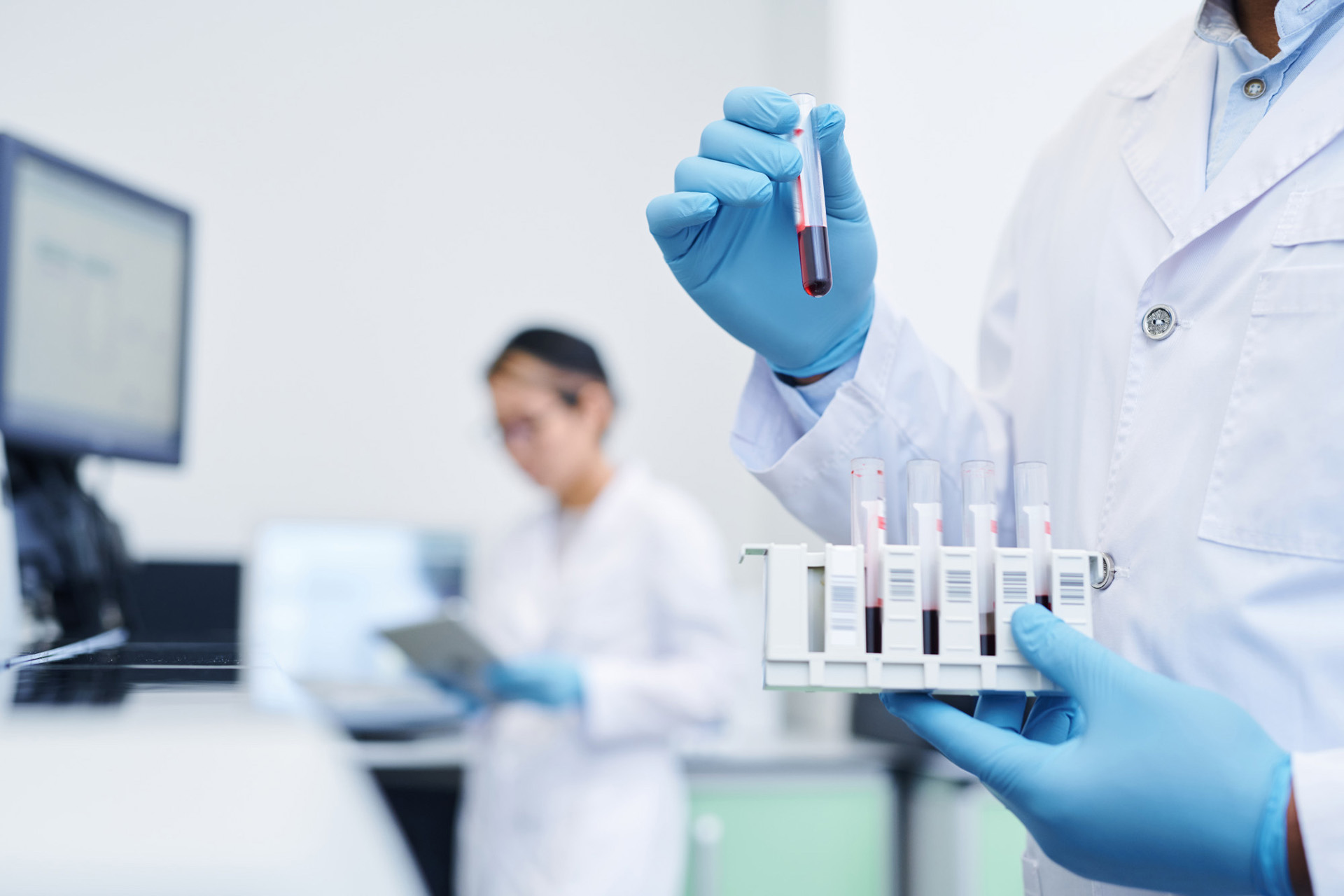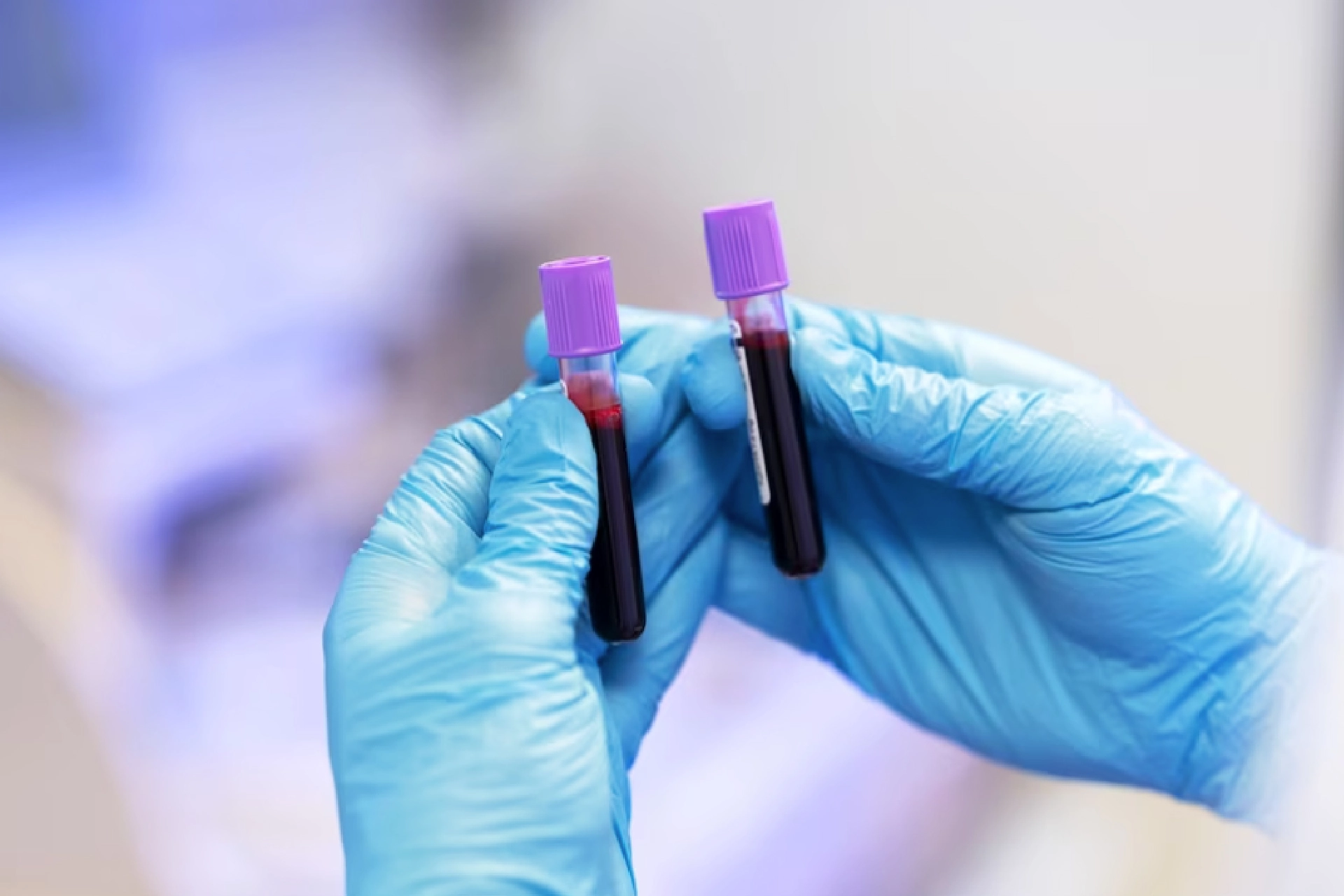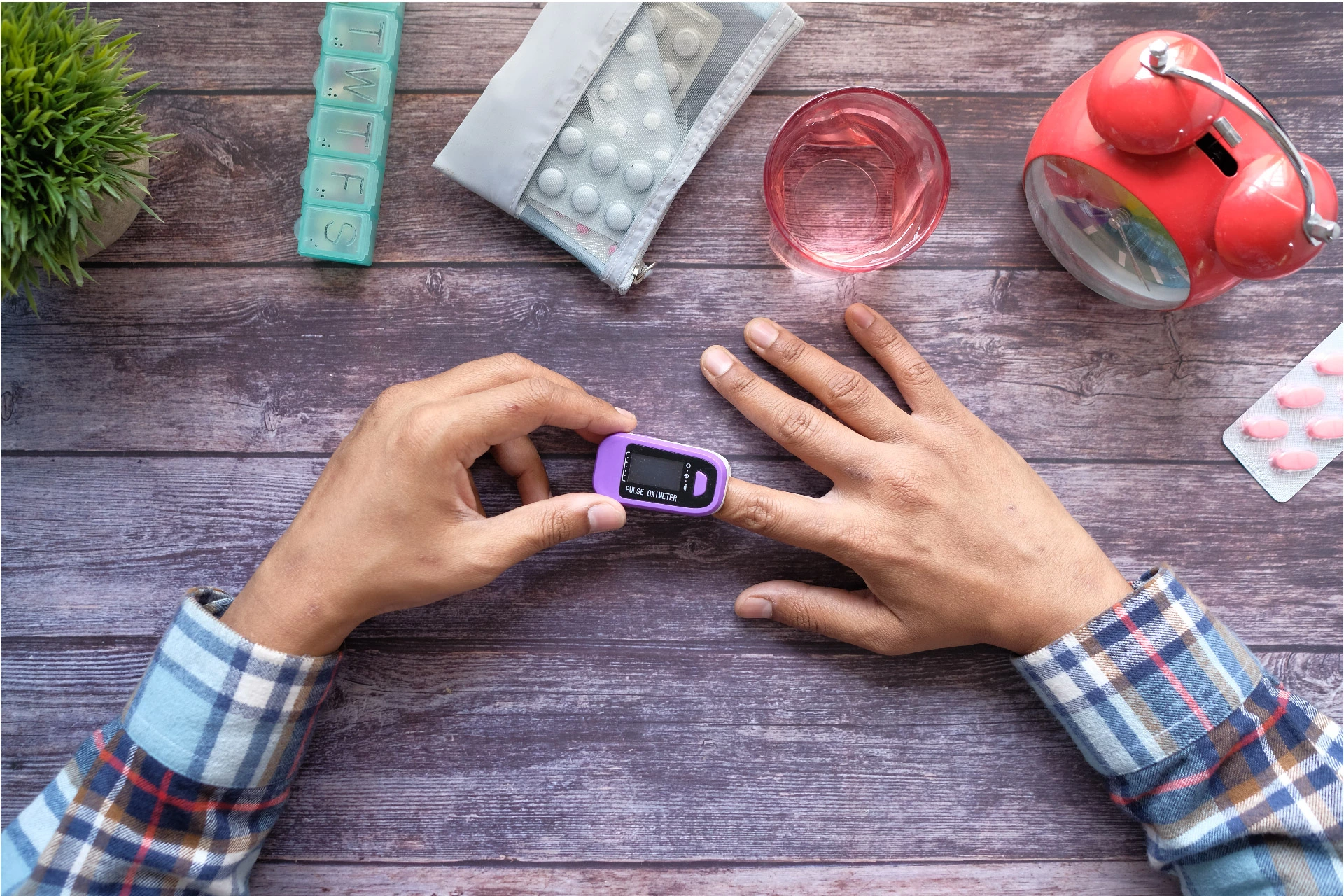Health Tests | 5 min read
Digoxin Test: Purpose, Procedure, and Risks
Medically reviewed by
Table of Content
Synopsis
A digoxin test measures the digoxin drug level in your body. Doctors use it to monitor heart failure symptoms. Know more about why a digoxin lab test is needed when taking this medicine.
Key Takeaways
- Digoxin helps treat problems like irregular heartbeat or heart failure
- With a digoxin test, doctors monitor the digoxin level in your body
- Both high and low levels of digoxin can lead to concerning symptoms
With a digoxin test, doctors measure the level of the digoxin drug present in your body. It is important to note that digoxin belongs to the cardiac glycoside group of medicines and helps treat problems like irregular heartbeats or heart failure. You usually need to take it as an oral medication. Once you do, digoxin gets transported to the tissues and major organs of your body, such as the liver, kidney, heart, lungs, and more.
With a digoxin test, doctors can determine whether there is more than needed or less than needed digoxin present in your body. It is crucial to maintain an ideal level of digoxin in your blood; otherwise, the drug can have adverse effects on your body. To know why the digoxin level test is important and to learn other aspects of a digoxin lab test, read on.
The purpose of a digoxin test
Digoxin can be toxic if you do not follow the dose recommended by your doctor. Both are getting overdosed, or consuming it beyond the prescribed duration can be harmful to your health. Doctors regularly check the amount of digoxin in your blood after they prescribe it to you. Remember that seniors and kids are most vulnerable when it comes to a digoxin overdose, also known as digoxin toxicity.
In most cases, doctors recommend the digoxin test as soon as you start consuming the medicine. After that, they may keep checking the level of digoxin in your bloodstream as an overdose can lead to similar symptoms of heart disease, which digoxin was meant to treat.
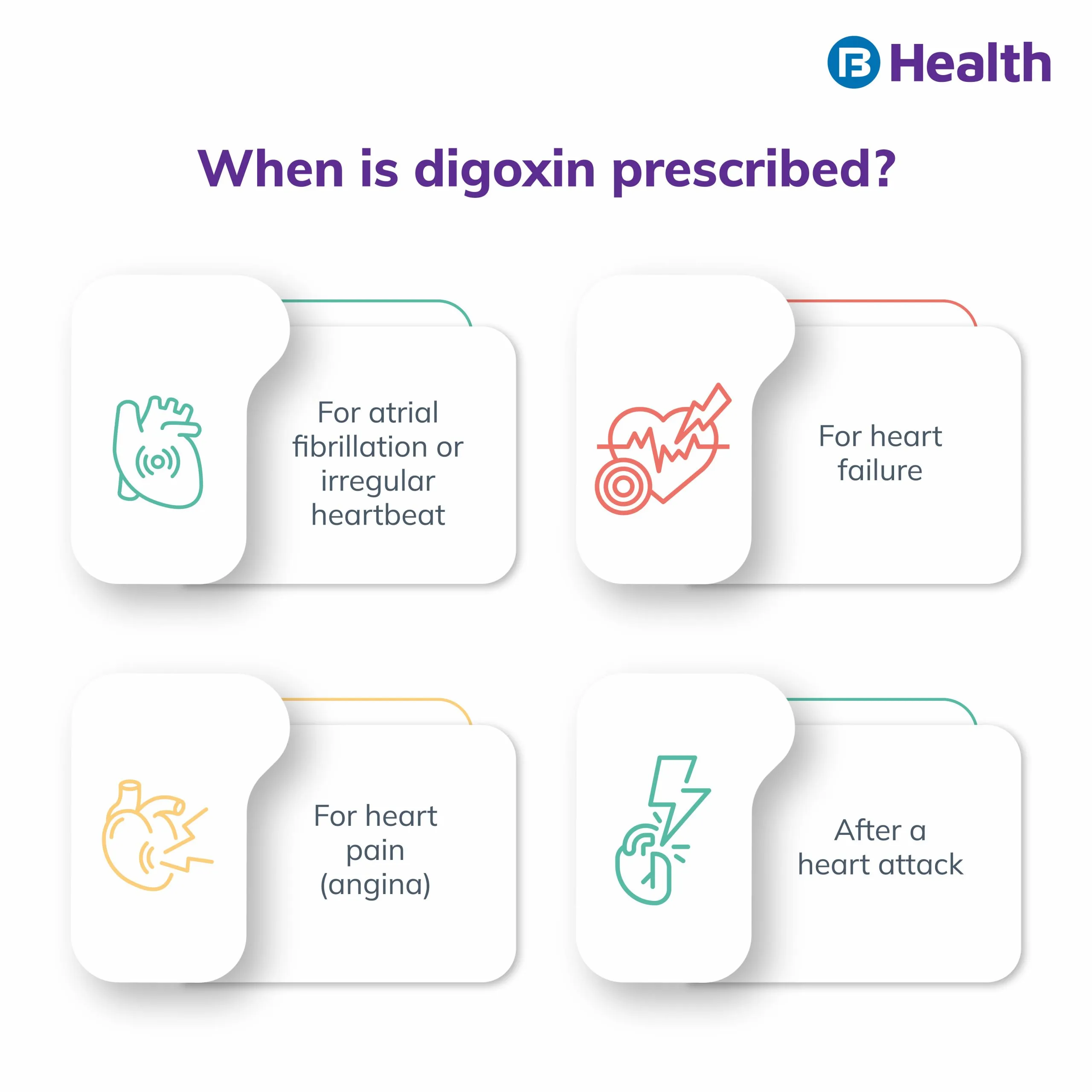
The procedure
A digoxin level test is performed by collecting a sample of your blood, for which you may have to visit a lab or a hospital. Here are some of the prescription drugs, OTC, and supplemental medications that can impact the level of digoxin in your bloodstream.
- St. John’s wort
- Quinidine
- Antifungal drugs such as ketoconazole and itraconazole
- Verapamil
- Rifampin
- Oleander
- Propafenone
- Medications that reduce swelling or inflammation
- Cyclosporin
- Amiodarone
- Eliglustat
- Ranolazine
- Lapatinib
- Ciprofloxacin
- Flecainide
- Certain medicines for hypertension
- Antibiotics such as erythromycin and clarithromycin
Before going for the digoxin test, ask your doctor whether to stop taking other medications prior to the test for accurate results. Make sure you have consumed digoxin at the right time before the test otherwise, the test result will be affected. The ideal time is usually around 7 hours after taking medicine. Before your test, tell your doctor about any other medication you are taking along with digoxin too.
Additional Read: How to Get a Lab Test DiscountRisks of having too less or too much digoxin in your body
In case your digoxin level test shows too little of this drug, it can lead to the following symptoms of heart failure:
- Breathlessness
- Tiredness
- Inflammation in your limbs
If your digoxin test shows that the amount of digoxin present in your body is more than the optimum level, it may lead to the following symptoms of overdose:
- Nausea and vomiting
- Acute stomachache
- Dizziness
- Problems with vision
- Difficulty breathing
- Disorientation or confusion
- Diarrhea
- Irregular heartbeats
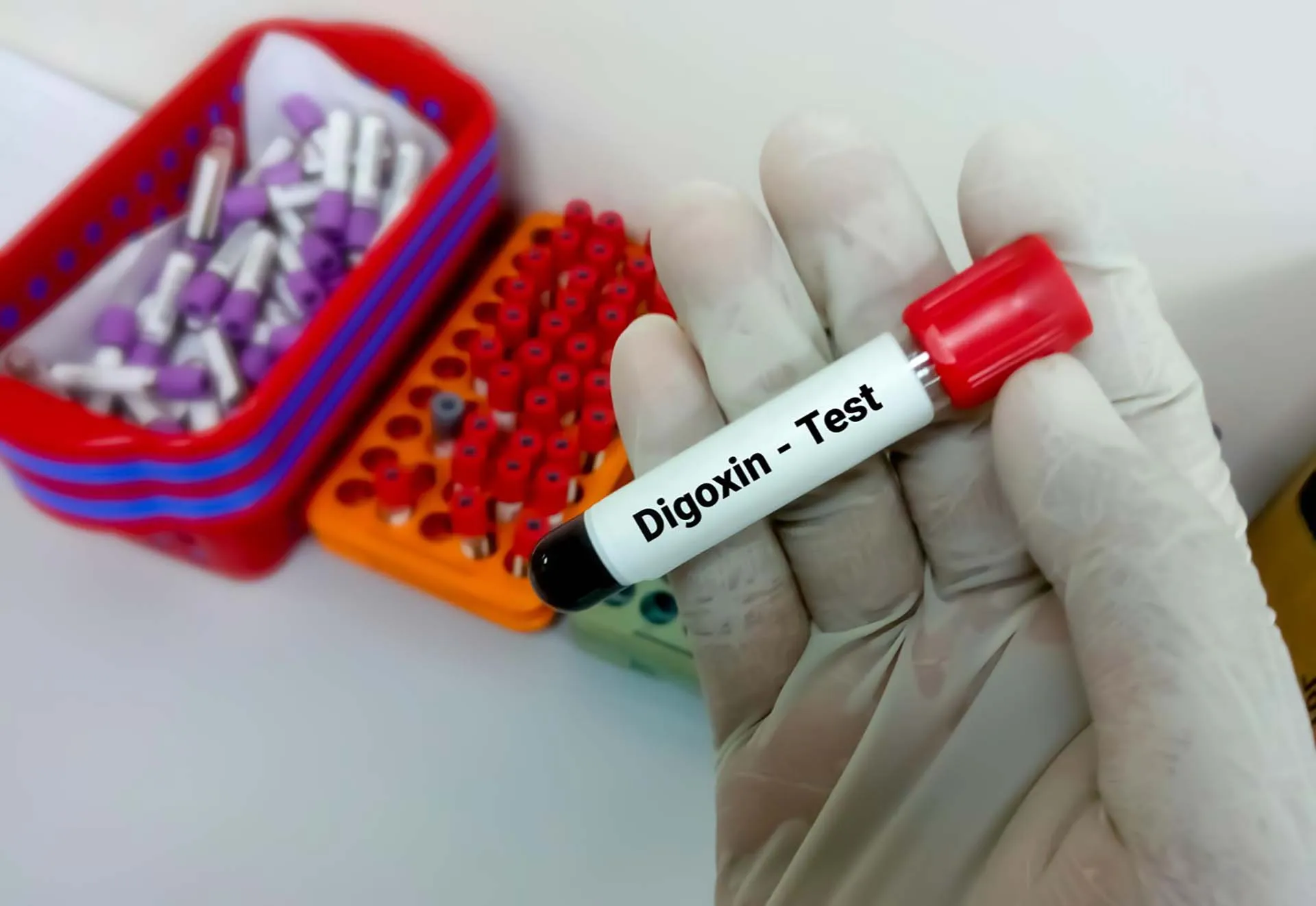
Interpreting the results of a digoxin lab test
If you are consuming digoxin as part of the treatment for heart failure, it is important to maintain 0.5-0.9 nanogram [1] of digoxin in every milliliter of blood, represented by the unit ng/mL. If the treatment is for heart arrhythmia, the expected level of the medication is within 0.5-2.0 ng/mL.
In case the digoxin test results reflect an abnormal level of digoxin, doctors will change your dose as per requirement. Note that the normal level of digoxin varies depending on your medical history, testing procedure, sex, and other parameters like the health condition it is meant to treat.
If the levels stay within the therapeutic range, signs of heart failure gradually reduce for most people. In case the level of digoxin goes beyond four ng/mL, it will cause toxic reactions and may lead to fatal consequences. This is why doctors check the digoxin level frequently.
Additional Read: Hemoglobin Test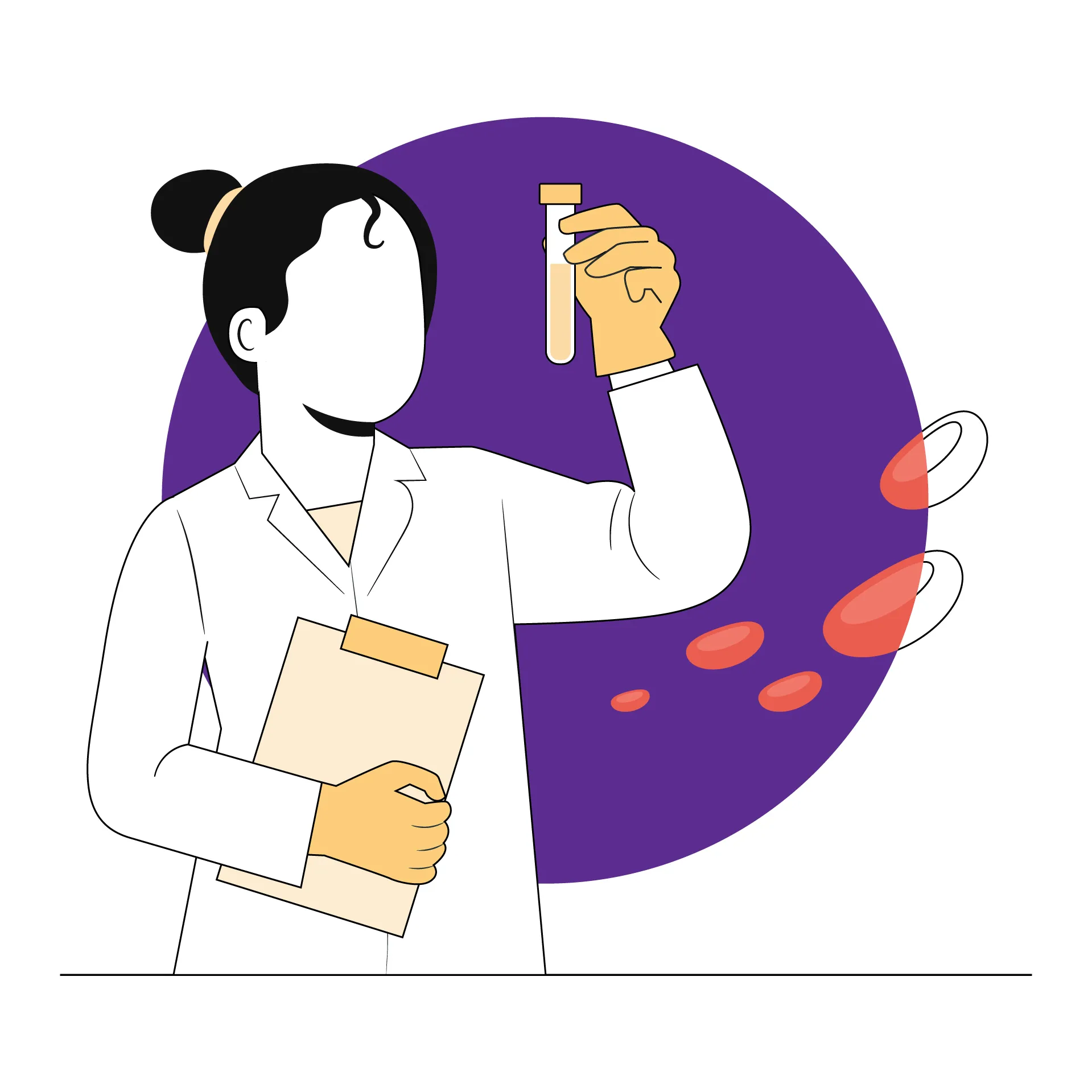
Other important facts to remember.
As digoxin is mostly expelled from your body with the help of the kidneys, doctors may want to monitor them to make sure there is no bottleneck in this process. Low potassium and magnesium levels can also spike the toxicity of digoxin, so doctors may also check these two parameters.
If you are suffering from atrial fibrillation, a type of condition where your heartbeat is irregular, consuming digoxin can be fatal for you. In cases of high digoxin toxicity, doctors can administer an antidote named digoxin immune FAB to reverse the adverse reactions of digoxin.
With all these crucial facts about the digoxin test and digoxin monitoring, you can conveniently address situations where either you or your loved ones have digoxin for certain heart conditions. Make sure to consult with doctors and clarify all your doubts about the drug and its positive and possible adverse effects. For quick access to medical advice without leaving home, you can consult a doctor remotely on Bajaj Finserv Health and get all your concerns resolved. What’s more, you can book a lab test, including the digoxin test, a hemoglobin test, and more, on this platform too. This way, you can not only schedule your test with sample collection right from your home but also enjoy a lab test discount from partner centers.
Apart from this, you can get comprehensive health coverage by browsing through Aarogya Care health insurance available here. By subscribing to the Complete Health Solution Plan, for instance, you get not only wide coverage but also benefits like a wellness wallet balance of up to Rs.32,000 for doctor consults and lab tests and preventive health check-ups at no cost for two adults with over 60 tests, and more. Check it today and commit to putting your health first!
References
- https://www.ncbi.nlm.nih.gov/pmc/articles/PMC3646412/
Disclaimer
Please note that this article is solely meant for informational purposes and Bajaj Finserv Health Limited (“BFHL”) does not shoulder any responsibility of the views/advice/information expressed/given by the writer/reviewer/originator. This article should not be considered as a substitute for any medical advice, diagnosis or treatment. Always consult with your trusted physician/qualified healthcare professional to evaluate your medical condition. The above article has been reviewed by a qualified doctor and BFHL is not responsible for any damages for any information or services provided by any third party.
